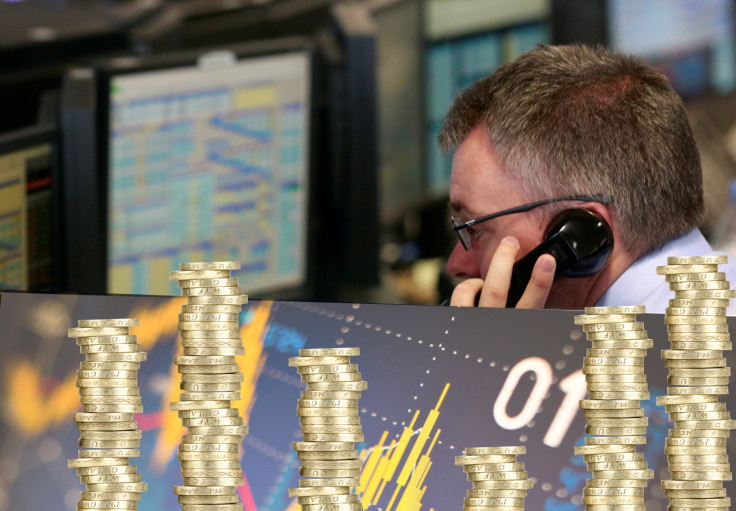Equity markets looking a little expensive but not overpriced
There could be much to go for in 2017 given increasing signs global economy is getting into recovery mode.

My last IBTimes UK column back in December - a look ahead to 2017 - was premised on the suggestion that this year could be subdivided into a number of areas, represented by the acronym Picture – Populism, Inflation, Commodities, Trump, Uncertainty, Repatriation and Earnings.
Just three months into the new year, the "picture" is indeed beginning to emerge. What should investors make of the current situation? The question of populism is somewhere around halfway through in mainland Europe.
The outcome of the Dutch elections was as hoped, while the current situation in France is also – according to the polls – leaning towards the status quo as opposed to the far right who would be looking to exit the EU.
However, complacency has certainly not set in following the shock outcomes of both the Brexit vote and the US election last year (even if both turned out to be positive for markets).
The difference with the European elections is existential, in that were the populist parties to gain power, the question of whether the European Union could be broken up would be of immense concern to investors.
With the German elections also due later in the year, this remains a live issue. Unlikely though a disintegration of the area is, especially given the determination of politicians to keep it intact (as recently evidenced, for example, in the further assistance being given to Greece), it is nonetheless one where developments will continue to affect sentiment.
In the US, President Donald Trump's first 100 days will come at the end of April but already there are a number of factors in play which have latterly given markets some pause for thought after an initially euphoric reaction to his election.
Trump election promises
There is little question that sentiment remains positive that Trump's agenda will be pro-business, with election promises of infrastructure spending and tax reforms turbocharging the main US indices. As things stand, however, details on either remain sparse and there is an additional complication.
Trump's promise to repeal and replace the Affordable Care Act – commonly referred to as "Obamacare" – was pulled from the voting schedule in the House of Representatives on Friday (24 March) when it emerged that Trump could not get enough Republican support for the measures.
At a time when the president's political capital should be at its highest, any failure to deliver on this major reform would inevitably cast aspersions on his ability to follow up with the other reforms the market has been so eagerly anticipating.
This in turn would be negative for sentiment and would no doubt see markets giving up some of their gains.

On the other hand, the bulls would point to some of the market rises being down to a lack of negatives in those election promises. This is a contrarian way of thinking which boils down to the lack of "non-negatives" – that is, one of the reasons why companies have been reluctant to invest in their own businesses over the last few years has been a fear of ever increasing regulation and red tape, as well as the unknown possibility of tax hikes around the corner.
As such, the argument goes that even if the reforms Trump wants to get through are not delivered, the very fact that he is attempting to do so is enough to show that there should not be any further regulation or tax increases to come. This has somewhat reignited the "animal spirits" in the US for both company bosses and investors alike.
Emerging markets show signs of growth
From a wider perspective, there are increasing signs that the global economy is starting to get into a proper recovery mode. The emerging markets in particular are showing signs of growth, whilst generally easier monetary conditions are allowing for the paydown of debt, something which the steady rise of inflation could help further.
In the UK, economic data have generally been positive – notwithstanding that we are some considerable time away from becoming aware of the full ramifications of Brexit after Article 50 is triggered – and the consumer is showing little sign of retrenchment yet.
Meanwhile, fourth-quarter company earnings were, on the whole, better than expected on both sides of the pond. The first-quarter 2017 earnings which will be reported over the next few weeks will be scrutinised to see whether companies are holding up their side of the bargain with the strong earnings and profit growth they have been showing of late.
As the picture continues to emerge, this is an interesting time for investors.
Markets are beginning to look a little expensive on historic valuation terms, but not overpriced. By the same token, much of what has been priced in has yet to be delivered, such that sentiment will remain fragile until some tangible benefits begin to wash through. There is also an increasing feeling that markets may have risen too far too fast – virtually in a straight line to new record highs in recent months – such that some sort of correction is inevitable if the news flow disappoints.
By the same token, in this era of historically low interest rates and accommodative monetary policy, there could yet be much to go for and, in any event, with many of the fundamentals intact, any such market correction could actually present a buying opportunity on the dip.
Richard Hunter is the Head of Research and investment committee member at Wilson King Investment Management . The former Hargreaves Lansdown, Natwest Stockbrokers and Fyshe Horton Finney industry veteran is a Fellow of the Chartered Institute for Securities & Investment (FCSI) with over 30 years of stock market experience.
© Copyright IBTimes 2025. All rights reserved.






















